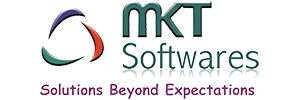Recent Posts
- Flawless employee management: Key to a successful organization
- Brandi, that styles your brands with intelligence and analytics.
- People Choice- An Innovative and Strategic HR Management Software
- Boring bookkeeping or smart accounting? The choice is yours
- MKT Softwares Wins the ChannelWorld Premier 100 Awards 2015
Recent Posts
- Flawless employee management: Key to a successful organization
- Brandi, that styles your brands with intelligence and analytics.
- People Choice- An Innovative and Strategic HR Management Software
- Boring bookkeeping or smart accounting? The choice is yours
- MKT Softwares Wins the ChannelWorld Premier 100 Awards 2015
